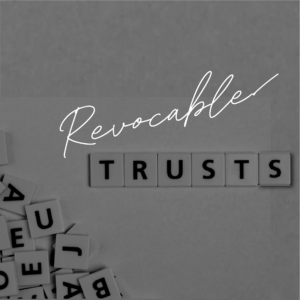
Question: I just got remarried but I have children from a previous marriage. If something were to happen to me, how do I take care of my spouse during his lifetime but ensure that my assets go back to my children after his death?
RLG advice: So you’ve found love again and are navigating the adventure of a second marriage with kids from a previous chapter. Kudos! Let’s chat about some friendly advice on how to make sure your wishes are honored and everyone gets their fair share.
Step 1 – Get your Valentine a gift of a Last Will & Testament or Revocable Living Trust!: Of critical importance to you who has seen Cupid more than once, is to get your Will or Revocable Living Trust – what we call your foundational estate planning documents – signed asap! In your documents you will state that what passes to your spouse will go in trust (a QTIP or Qualified Terminal Interest Property trust) so that when your spouse passes, the assets can revert to your children. By spelling out “the-what, the-who, the-when and the-how” in a Will or a Rev Trust, you are giving your loved ones the greatest gift of all – the gift of time that they would have otherwise lost dealing with a messy estate where state law determines who should inherit your assets.
Step 2: Don’t underestimate the power of titling of accounts. Remember your Will can be beautifully laid out but it will only control what is in your own name alone i.e your probate assets. However, for those accounts you own jointly with your spouse or if the account has beneficiaries designated (i.e. non probate), then such accounts will pass directly to the joint tenant or named beneficiary outside of your Will or Rev Trust.
Step 3: Deeds must also be re-titled differently. You and your new spouse need to have a frank conversation on what should happen to the family home when you are both gone. Is this a home you bought together? Is this home yours but he moved into after you got married? If the end goal is that your children should benefit from this when you are not around, then titling of the deed becomes critical. If the deed has the magic words “husband and wife” or “married couple” at the end of your names, then the house get a “Tenancy by the entirety will automatically pass to your wife, outside of probate and your children will be out of luck. ). Talk to your new spouse and figure out whether it makes sense to keep title in your name alone so you can either dictate what happens to it in your Will or Trust, or if you agree to create mirror image Wills that you both agree not to change upon the death of one, this could also ensure that your children will be the final beneficiaries under either Will.
- Don’t forget the Elective Share. The law in NJ provides that unless you both had contractually agreed to not receive anything from the other spouse’s estate, if you disinherit your spouse in your estate planning documents, your spouse has a claim for his or her Elective Share against your estate. This means that the disinherited spouse has the right to receive upto 1/3rd of your augmented estate (i.e. probate and non-probate assets). So before you decide to omit your spouse without your spouse’s consent and waiver, you will need to make sure that your spouse is properly provided for with your other assets and everyone is treated equitably.
- Communication is critical: Grab a cup of coffee and sit down for a heart-to-heart with your spouse (and if your kids get along with your new spouse, then bring them into the conversation too). Talk to them about your dreams, concerns, and expectations. Then, turn those dreams into reality with legally binding documents like wills and trusts. It’s like making a promise with a seal of approval! Unfortunately, the best laid plans can fall prey to expensive and lengthy court battles when disgruntled beneficiaries make claims that this is not what the deceased wanted. Explaining things to family during lifetime and supporting that with documentation can bring closure to your grieving family.
Remember, estate planning is about giving your loved ones the gift of time which in turn creates peace of mind and a happy home for everyone. This Valentine’s Day, give the gift of love, laughter, and a happy home to your family!

